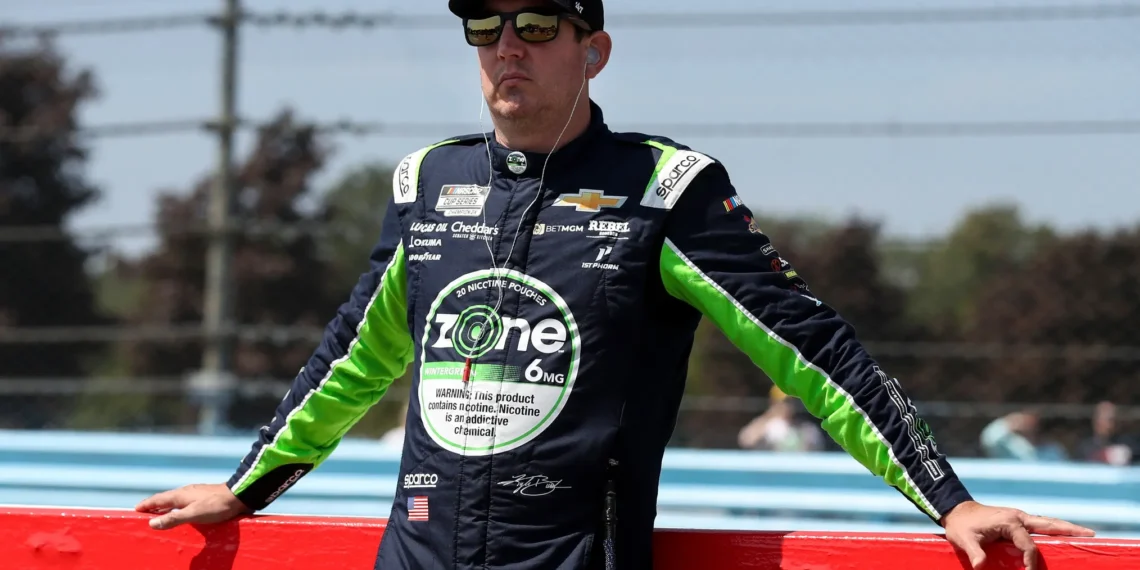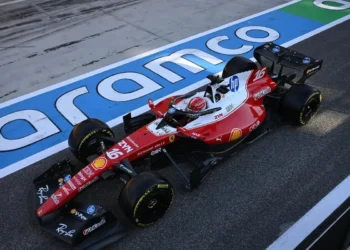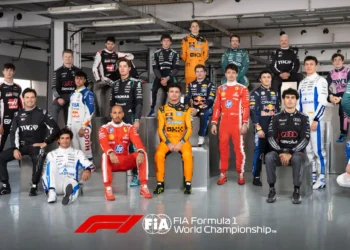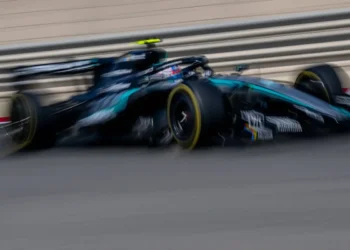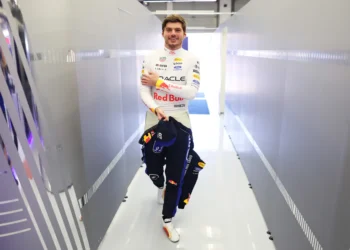Kyle Busch Unleashes a Scathing Critique on Las Vegas Motor Speedway: “It Doesn’t Need Two Dates!”
In a shocking revelation that has sent ripples through the NASCAR community, two-time Cup Series champion Kyle Busch has boldly taken aim at his hometown track, the Las Vegas Motor Speedway, declaring that it simply doesn’t warrant two race dates in the NASCAR schedule. This fierce criticism from a driver who has long been synonymous with the Vegas racing scene could reshape the way fans and officials view the future of NASCAR’s scheduling.
Busch, a driver with an illustrious career that includes victories on the most challenging tracks in the circuit, has never shied away from speaking his mind. His comments come at a time when NASCAR is reevaluating its schedule to maximize fan attendance and market potential. Yet, his passionate allegiance to Las Vegas is now overshadowed by a stark reality: “As much as I love Vegas, and Vegas is my hometown, I don’t think Vegas needs two dates,” Busch expressed bluntly on social media platform X.
This statement marks a pivotal moment for Busch, who has spent two decades showcasing his talent on the very track that helped launch his career. However, the numbers speak for themselves. Recent attendance figures at the Las Vegas Motor Speedway have been disappointing, with the grandstands only 50-60% full during the 2023 South Point 400. Once a venue boasting a capacity of 140,000, the track has seen its seating reduced significantly in recent years, raising questions about the viability of hosting multiple races.
Busch’s candid assessment underscores a growing concern within the sport: “If you’re not packing the grandstands and selling out every single time, then you only need one date.” His assertion calls for a more strategic allocation of race dates, advocating for shifts that could invigorate the sport and introduce thrilling challenges at alternative venues, ultimately leading to a richer fan experience.
The Las Vegas Motor Speedway has served as a canvas for Busch’s career, where he clinched his first NASCAR Cup Series victory in a dramatic 2009 race. Despite a strong history, including three top-6 finishes in recent years, Busch’s racing experience at the track reveals a troubling trend: the racing itself lacks excitement. He pointedly remarked that on tracks like Las Vegas, “dramatic passes are all but eliminated” due to the overly aerodynamic nature of the racing.
Busch believes that the future of NASCAR should focus on tracks where driver skill, rather than mere track position, dictates race outcomes. He hinted at the need for more dynamic venues, suggesting that NASCAR explore alternatives that promise greater competition and fan engagement. “I would say maybe, I don’t know, maybe another Bristol,” he mused, emphasizing the importance of creating a racing landscape that challenges drivers and entertains fans alike.
While Busch’s comments may ruffle feathers among Las Vegas loyalists, they bring to light a critical discussion about the sport’s priorities. With the upcoming races on the calendar, NASCAR must weigh the importance of fan attendance against the need for thrilling, competitive racing.
As Busch continues to navigate his career, his recent statements serve as a clarion call for change within the sport. Will NASCAR heed the words of one of its most prominent figures? Only time will tell. What remains clear is that Busch’s critique shines a light on the need for a vibrant and responsive scheduling strategy that prioritizes both fan engagement and the integrity of racing.
For fans and stakeholders alike, the question now looms: is it time for NASCAR to rethink its commitment to Las Vegas and embrace a future that fosters excitement and growth across the sport? The answer could very well redefine NASCAR’s landscape for years to come.

